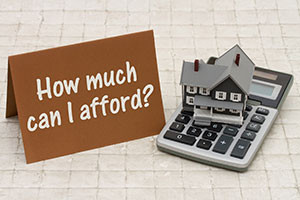 Phil McCarroll writes a piece for Your Investment Property where he says that people’s confidence level in real estate has taken a plunge despite the fact that the property market remains stable and that there is no ‘real’ change in the market. The decline in confidence level can be put down to speculation on part of the buyers which is a direct result of anticipated changes in government policies and lending standards, among other things.
Phil McCarroll writes a piece for Your Investment Property where he says that people’s confidence level in real estate has taken a plunge despite the fact that the property market remains stable and that there is no ‘real’ change in the market. The decline in confidence level can be put down to speculation on part of the buyers which is a direct result of anticipated changes in government policies and lending standards, among other things.
HomeBuyer Confidence Index (HCI)
McCaroll, however, is quick to assert that there is no dramatic fall in the confidence level. The HomeBuyer Confidence Index (HCI), released semi-annually by Genworth (lenders mortgage insurance provider), was at 98.2 in March 2016. This is 1.4 points below the September 2015 reading which stood at 99.6.
Investor speculation is not unwarranted
It is noteworthy that the Index remains close to record levels and it reflects the stability of the market. With interest rates and unemployment well under control, the macro-level dynamic of the real estate market shows no distress at all. It is just that the public has speculated a lot over the last few months. There has been constant talk about a housing bubble.
Federal elections are round the corner and with them come the anticipation of changes that may disturb the status quo. Quite naturally, they only lend fuel to speculation. Apart from this, the negative gearing debate (whether it should be abolished or not) is heating up and lenders have tightened their policies. Together, these shifts have eroded buyer and investor confidence to some degree.
No macro-economic changes
So, it can be said in all fairness that the dip in HCI has nothing to do with ‘real’ macro-economic changes but is only a result of speculation on the buyers’ part.
So, is it a right time to buy properties?
It is, however, a matter of concern that only 36% of people think it is the right time to invest in properties. This percentage was a far more robust 54% in September 2015. Alterations in regulatory measures are partly responsible for this drop in percentage. With the more stringent lending policies, it is only expected that less people are game for property investing.
It only adds to the uncertainty that price growth has cooled down considerably in Sydney and Melbourne. It has created a scenario where the buyers are looking beyond these two markets, taking a time-out of sorts.
First Home Buyers
 First home buyers (FHBs) are not feeling any more sure about the market. Only 50% (March 2016) of them feel they should buy a home. This percentage was 67% in September 2015.
First home buyers (FHBs) are not feeling any more sure about the market. Only 50% (March 2016) of them feel they should buy a home. This percentage was 67% in September 2015.
The first home buyers are feeling the ‘deposit’ pinch. While they are not unhappy about the existing interest rates, they feel that high property prices have created accessibility issues which are keeping them away from the market. They are finding it increasingly difficult to enter the market because with peaked property prices, the 20% initial deposit is proving to be a bit of a challenge.
You can read the original article here.
Government initiatives have kept first home buyers alive (though they are only somehow managing). With a flurry of overseas investors eyeing Australia, the price of new properties may only rise from here on in despite reports of a cooling market. The situation may become even more difficult for the FHBs to tide through.
Some of them are employing rentvesting as a strategy to fulfill their dreams. Rentvesting deals with buying an investment property in a cheaper suburban area and living on rent in a close-to-CBD area. However, apart from the lucky few who can manage this, there are many who are finding it mighty difficult to cope with the initial deposit fee.
To reiterate what MaCarroll says, when property prices peak, a 20% deposit does not remain an easy goal to achieve. Government will have to see that in a climate of tightened lending policies, the FHBs get ample opportunity to enter the Australian real estate. Only, low interest rates- great that they are–may not solve accessibility issues.











